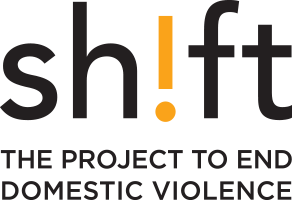COVID-19 has contributed to an increase in domestic and sexual violence in Alberta and around the world, and this is challenging our sector’s ability to implement prevention approaches – yet they are more critical now, than ever. To continue to advance primary prevention efforts, Shift is leading and supporting a number of initiatives and projects that aim to understand the impact of COVID-19 on domestic and sexual violence and to identify and mobilize effective approaches to prevent and respond. Hover over each icon to learn more about each project.
Shift’s response to COVID-19
Developing a real-time provincial dashboard on domestic and sexual violence through a project called Data2Action.
Monitoring media reports from around the world on domestic violence, sexual violence, child maltreatment, gender equality and human rights and COVID.
Supporting the design of virtual care interventions to provide treatment to individuals and families at-risk of domestic and sexual violence during COVID.
Supporting research on using e-mental health interventions to address family violence issues during COVID.
Learning how to leverage artificial intelligence in Canada’s COVID social response.
Partnering with over 350 domestic and sexual violence organizations to advance primary prevention during the recovery phase of COVID.

Data2Action: Alberta domestic and sexual violence response to COVID.
The Data2Action initiative is a partnership with HelpSeeker (a social enterprise that offers systems planning and integration solutions), and IMPACT (a provincial collective impact initiative to eradicate domestic and sexual violence in Alberta). This initiative is focused on addressing the issue of limited data and knowledge related to how the domestic and sexual violence sector responds during pandemics. Data2Action will curate, analyze, and disseminate real-time and long-term information from key community stakeholders in the areas of domestic and sexual violence to inform community-based strategies, interventions, and government policies that prevent and respond to domestic and sexual violence.

Monitoring media reports on domestic violence, sexual violence, child maltreatment, gender equality, human rights and COVID.
Between December 1, 2019 and July 16, 2020, Shift compiled media coverage related to domestic violence, sexual violence, child maltreatment, gender equality and women’s rights during COVID in selected countries. The objective of this process was to monitor and understand media coverage of these issues to inform the development and implementation of policies, programs, and approaches to prevent and address domestic violence, sexual violence, child maltreatment, and gender inequality in the context of COVID. Individuals, practitioners, organizations, and policy-makers can use this resource to understand predominant issues covered by the media in relation to domestic/sexual violence and child maltreatment during COVID, and they can use these findings to inform the development and implementation of prevention and intervention strategies during times of crisis and disaster.

Supporting the design of virtual care interventions to provide treatment to individuals and families at-risk of DV during COVID.
This is a research project in partnership with Dr. Stephanie Montesanti and Dr Peter Silverstone funded by Canadian Institutes of Health Research (CIHR). This project involves:
- Mobilizing knowledge on the application and feasibility of virtual care interventions to provide trauma-focused treatment to individuals and families at risk of domestic violence in Alberta; and
- Supporting the implementation of virtual care interventions to address domestic violence within a primary care setting.
This project aims to enhance knowledge on the use of virtual care in reaching individuals and families at-risk of domestic violence in the current pandemic context and identify scalable and appropriate virtual care interventions to address domestic violence. This project also aims to strengthen multi-sectorial collaboration to support the implementation of virtual care to respond to domestic violence related trauma post-COVID 19.

Supporting research on the use of e-mental health interventions to address family violence issues during COVID.
This is a research project in partnership with Dr. Stephanie Montesanti. This project focuses on:
- Examining the effectiveness of a comprehensive approach to addressing family violence using e-mental health tools.
- Understanding the experience of providers and individuals using these tools.
- Determining if this approach is scalable for widespread and cost-effective use in community and primary care settings and across a range of population groups.
- Strengthening multi-sectoral collaboration to address family violence and related trauma post-pandemic.
This research will potentially allow rapid and widespread deployment of a scalable and affordable intervention in this critically needed area. By using only e-mental health tools, this project may facilitate use of supports in geographically isolated communities, and in individuals who may not otherwise have easy access to appropriate supports.

InnSoTech: Leveraging artificial intelligence in Canada’s COVID social response.
This project is a partnership among Shift, HelpSeeker, AltaML, CMHC, and Corsac Technologies. Lead partner HelpSeeker has prototyped an algorithm that uses a unique national dataset to predict rates of homelessness, suicides, and domestic violence in 40 cities and the project aims to ramp up the development of this algorithm to support COVID responses. This project involves:
- Mapping of over 250,000 community and social services that play a role in addressing the second COVID
wave and recovery efforts. - Identifying factors that connect COVID with homelessness, domestic violence, and suicide across
diverse communities to predict and support “hot spots” in diverse Canadian communities. - Developing recommendations for proactive funding allocations to mitigate these social issues before they occur to optimize COVID social responses.

Partnering with over 350 domestic and sexual violence organizations to advance primary prevention during the recovery phase of COVID.
A partnership with Sagesse/IMPACT (a provincial collective impact initiative to eradicate domestic and sexual violence in Alberta), this initiative aims to facilitate evidence-informed policy design and implementation, advance coordinated action among diverse stakeholders, and support appropriate allocation of resources to advance primary prevention in Alberta during the recovery phase of COVID.
This project involves working with over 350 domestic and sexual violence organizations and policy-makers to research, design, and build the capacity for a primary prevention framework for Alberta, as well as develop the will and skills to collectively implement and scale the framework within diverse organizations and systems across the province.








